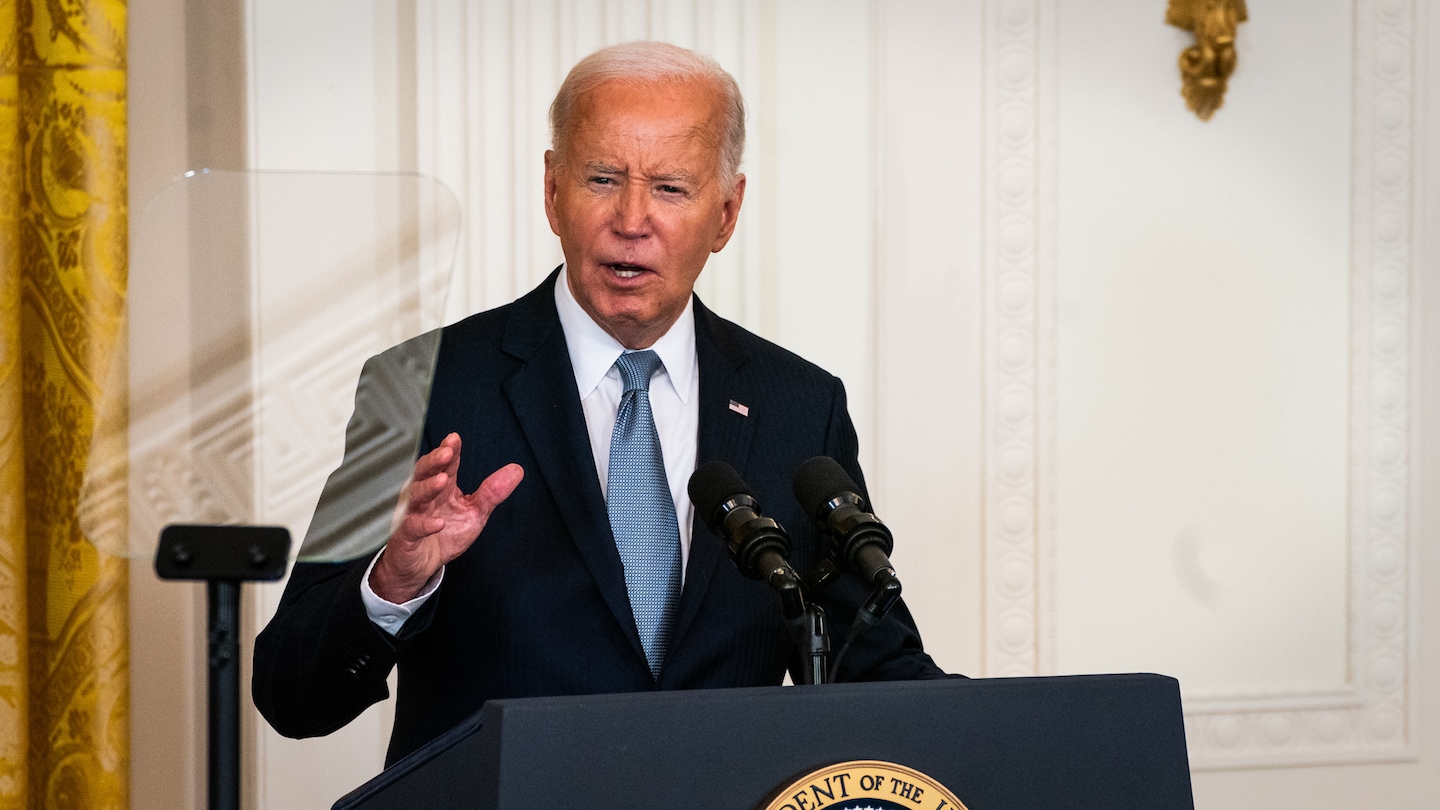The substantive agenda of the summit remains focused on support for Ukraine and its path to NATO membership, as well as alliance unity, burden-sharing and modernization. On Wednesday, Biden’s national security team prepared remarks — known in alliance parlance as “interventions” — for the main plenary summit meetings and set a schedule for bilateral sessions with individual government leaders on the sidelines.
But the debate woes have reinforced existing concerns — shared by many members of the alliance — that Biden’s re-election campaign is in trouble and risks returning to the troubled years of Donald Trump’s disdain for NATO, insults to fellow Western leaders and praise for opponents such as Russian President Vladimir Putin.
“What they’re worried about is Trump, not Biden,” suggested a White House official, one of several U.S. and foreign officials who spoke on condition of anonymity to discuss sensitive diplomatic and security matters.
A key question is whether Biden can navigate the intricate web of interactions at the three-day event, which involves nearly 40 leaders and their entourages, a tangle of complicated one-on-one meetings and the pressure to be NATO’s top leader, where any misstep could lead to political ruin.
Biden administration officials said there was no consideration given to limiting the president’s exposure during the summit, noting that a solo press conference that had been planned over earlier draft agendas has now been finalized.
In the wake of the growing unrest caused by the debate, a senior NATO official said the summit was a welcome opportunity to assess Biden in person and plan accordingly. The official said leaders would monitor the president’s behavior in all their interactions with him: at the summit itself, a reception, a Wednesday dinner for leaders and their spouses, and during one-on-one sessions.
Regardless of what is discussed publicly, “I think you can’t escape the political undertones of this summit, where it happens, when it happens, what the boundaries of it are in terms of the … debate and the convention,” John Deni, a senior fellow at the Atlantic Council’s Scowcroft Center for Strategy and Security, said Monday at a NATO preview event in Washington.
While the 75th anniversary NATO summit is designed as a show of strength to alliances, questions about Biden’s health have already become a major distraction that could undermine the summit’s goals, analysts say. “That’s the unfortunate reality,” said Andrea Kendall-Taylor, director of the Transatlantic Security Program at the Center for a New American Security and a former senior intelligence official focused on Russia.
“If he does a decent job, then maybe they’ll all go back to square one and say, ‘The media in America is so overblown,'” Kendall-Taylor said. “I think it’s going to play a huge role in shaping their sense of his future and the future of the Democratic Party.”
Just as the White House dismissed the debate as a “bad night” for Biden and touted the domestic policy achievements of the past three years, it this week turned its attention to what it sees as NATO’s successes during Biden’s tenure, from unity and support for Ukraine to the admission of Sweden and Finland.
“NATO has become stronger … and has gained two countries because of the leadership of this president,” White House press secretary Karine Jean-Pierre told reporters on Wednesday.
Responding to a barrage of questions from reporters about Biden’s mental acuity and physical stamina, Jean-Pierre pointed to foreign leaders, who “have seen the president up close and personal over the last three years,” she said. “They’ve talked about his leadership. They’ve praised his leadership. … They’re proud to see him as president of the United States after what they went through in the previous administration.”
As evidence, she noted that German Chancellor Olaf Scholz, in an interview on the sidelines of last month’s G7 meeting in Italy, praised Biden as “one of the most experienced politicians in the world” and “a man who knows exactly what he is doing.”
Israeli Prime Minister Benjamin Netanyahu, Jean-Pierre added, described the president after a phone call in February as “very clear and focused.”
But the fact that some of the testimony came from foreign leaders appeared to underscore concerns expressed by others at home and abroad as Biden increasingly finds himself in the spotlight, seeking to project both domestic strength and international power.
Ivo Daalder, who served as US ambassador to NATO during the Obama administration, said the summit will play to Biden’s strengths in many ways, providing him with opportunities to interact with friendly leaders and are the center of attention while other leaders make requests to the United States.
The widespread fear of Trump’s return also plays to the president’s advantage, he said, because this is a closely watched event. Biden would then be the person standing between them and potential drama and even the demise of the alliance.
“Everyone will hope that the next NATO meeting will also be with him,” he said of Biden.
Yet many NATO nations had already begun hedging their bets before last week. For months, embassies and officials have been busy in a desperate bid to forge ties with Americans seen as likely future members of Trump’s foreign policy team, both to gather assessments of how he might position the United States in the world and to curry favor.
Summit officials will meet and “compare notes” in an effort to gauge the reality of Trump’s threats and promises, James J. Townsend Jr., a former Pentagon official for European and NATO policy, said at the Atlantic Council event.
“Do you take him literally or do you take him, you know, with a grain of salt,” he said. “And frankly, if he gets elected, if he gets into the White House, we’ll just have to see where he goes.”
While it may not be discussed publicly, Townsend said, “After this last debate, it will certainly be the topic that is being talked about in the corridors.”
